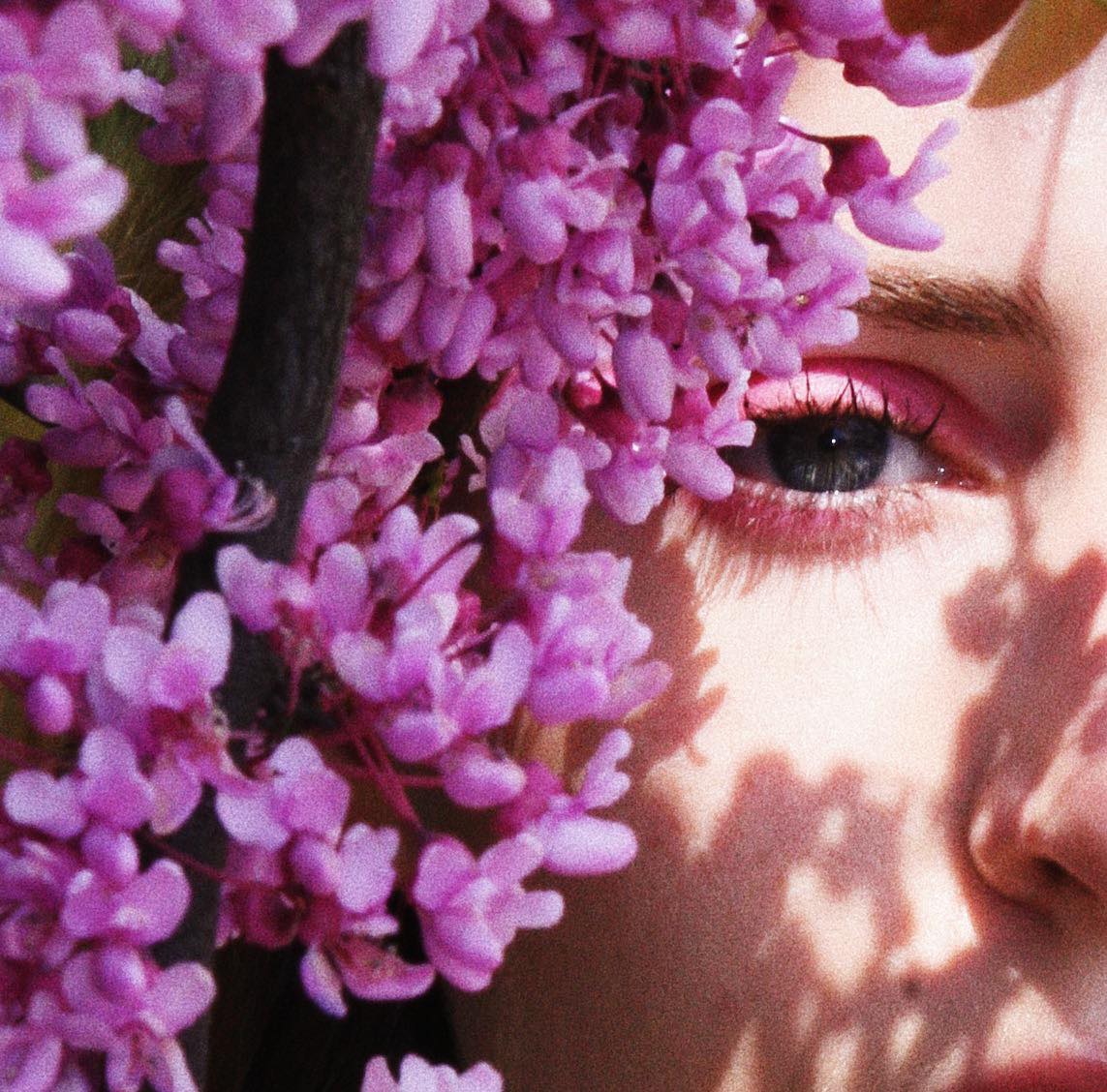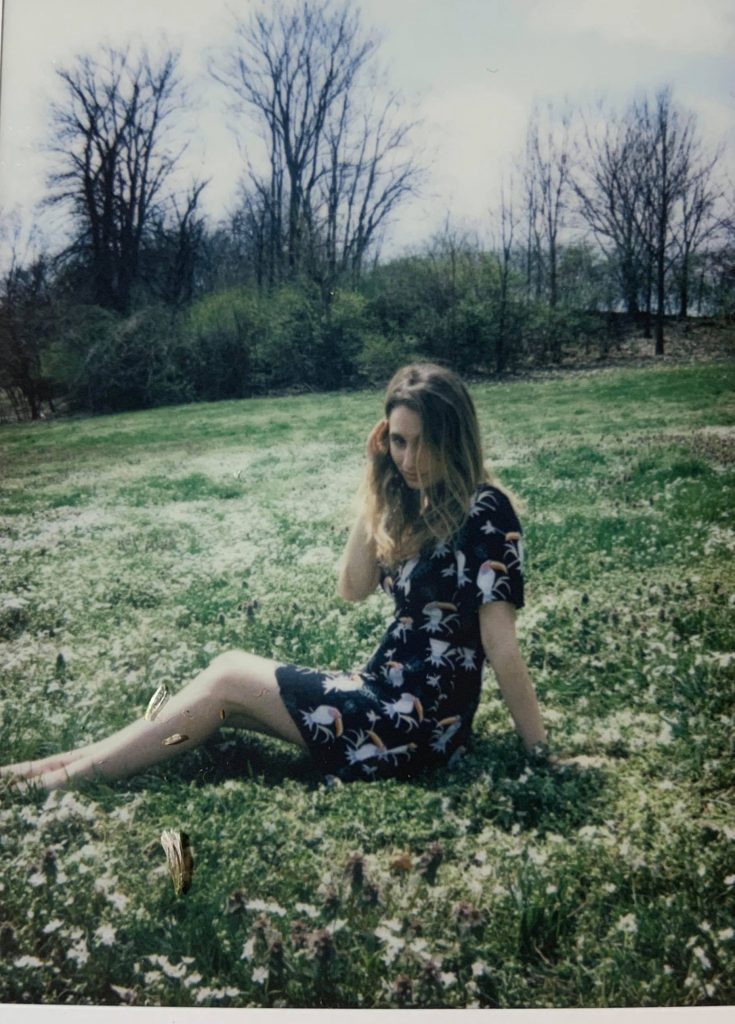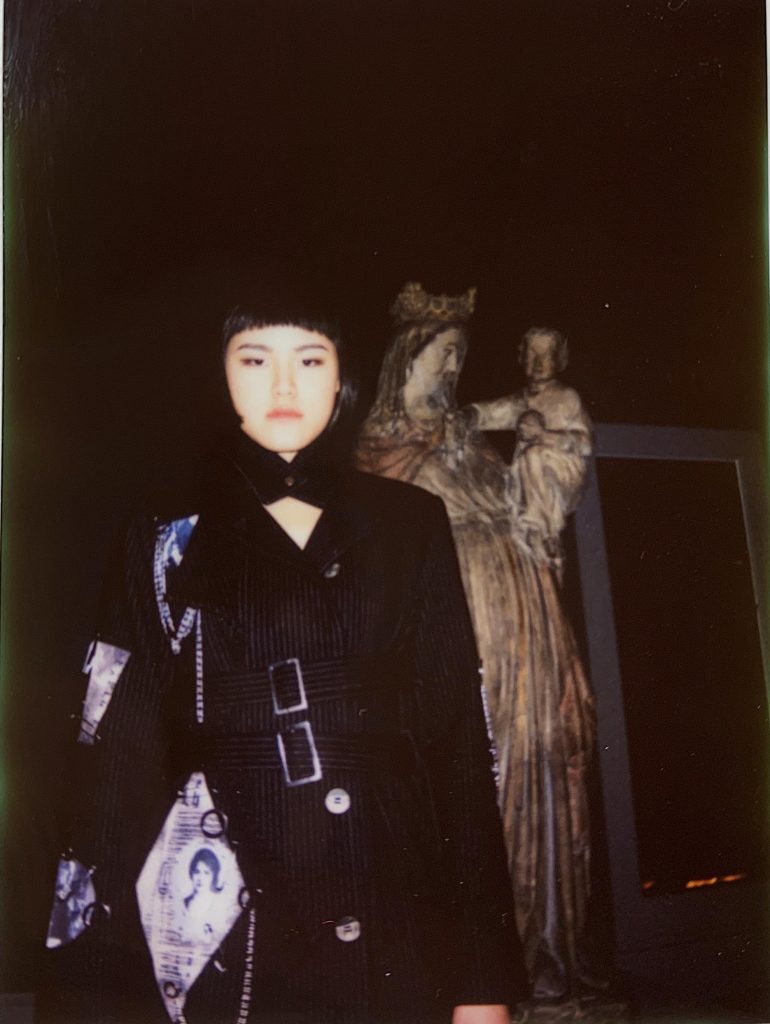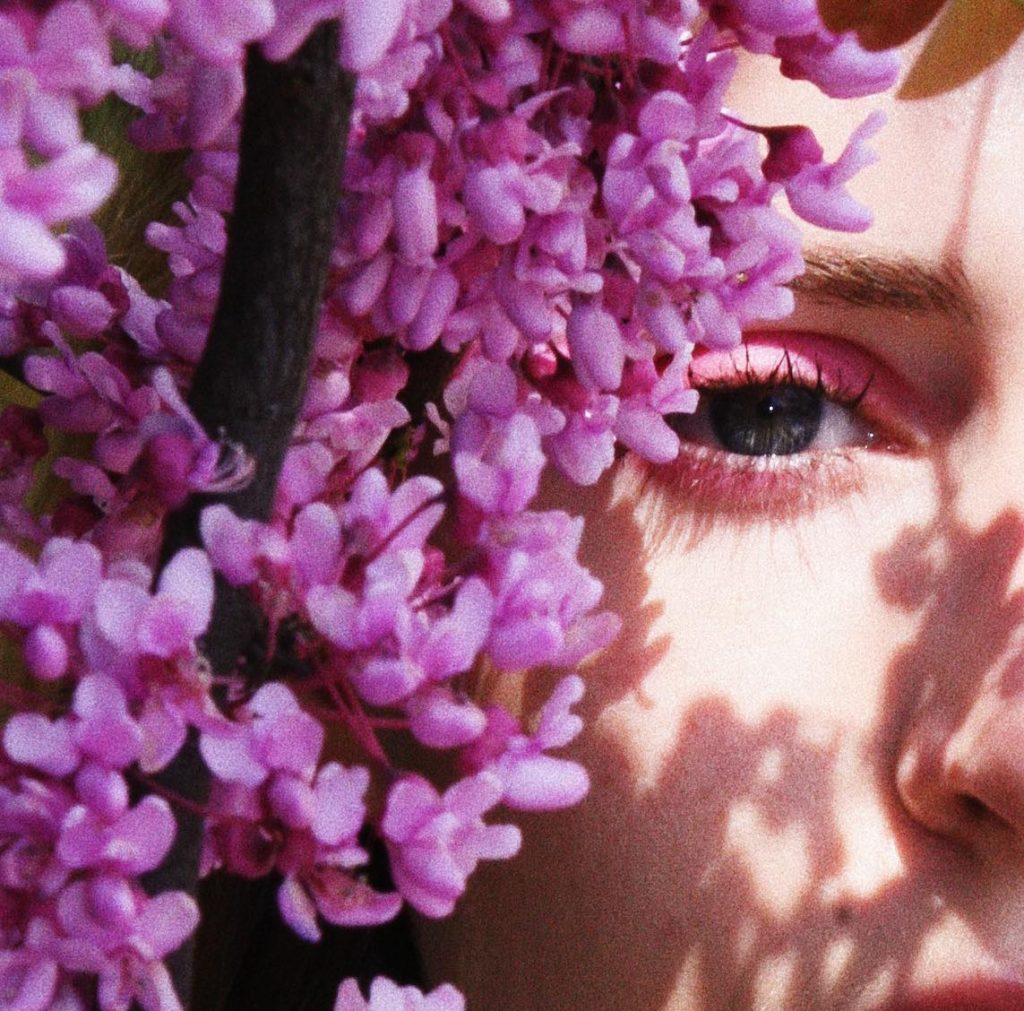
As June approaches, Hannah discovers a little piece of magic. For your birthday, she says, and sends me a link to a Facebook event:
The College of Occult Sciences invites you all to join us on June 15th for our Annual Midsummer Celebration, when we call upon the Fae. This year, our theme is Spiral Pathways. The evening will be spent in the company of the Fae, as we gather to celebrate with good food, drink and mischief. It would be in everyone’s best interest to bring an offering: something tasty, shiny and/ or sparkly. It is best to appease the Fae, and to show them respect, than to have them follow you home and wreak havoc. Rituals begin at seven p.m.
Hannah paints my face like a sunrise, hers like the tide, all seafoam green and glistening. We bring a rhinestone-covered pine cone–as good an offering as any. On the drive over, we listen to The Moody Blues, because that’s what we listened to months ago, in the Fall, as we drove home from a Renaissance Fair with our Medieval Literature professor. Then we were floating, our heads left behind at a tea party with a fawn who’d told us to spread our belief in magic, lest all the creatures we had met there begin to fade. So we listen to The Moody Blues, hoping to dance into that headspace again.
When we pull up to the address listed on Facebook, it’s not the festival grounds we’d imagined. There are no twinkling lights, no cosplay fawns and fairies. We sit in the car until a woman with a flowing skirt and a Yeti cooler looks Fae-festival-suspect enough that we ask her if she’s going where we think she’s going and follow her through a creaky gate to a backyard off Cherokee Street. As the gate swings close, someone yells to shut it tight; “you don’t want TJ escaping,” they say. I look at the dogs that lie sleepy and obedient around the yard. None seem at risk of escaping, but we close the gate tightly anyway. Soon enough we’re sitting with middle-aged women, listening to nostalgic reminiscing of good old Midsummers, made more colorful by hallucinogens and youth.
“Maybe we should’ve come high,” I tell Hannah. She flicks her chin at the cast of characters in the yard, which sparkles with offerings: satin ribbon, teacups, bells.
“Don’t you feel a little high, already?”
After an hour or so of observation and small talk–we learn that the gathering is full of people who have known one another for decades, along with those who were born into the community–a towering figure in a bejeweled tophat makes his entrance. TJ is not a dog, but a man–apparently at risk of escaping, though he looks as stable as one can, wearing a bejeweled tophat. A pair of Steampunk goggles swing from his cargo shorts, and he carries a giant glass jar of what looks like what would come out of a car engine, if someone should ring it dry. The contents are the Black Drink; we know this because The College of Occult Sciences had posted that it would be there, issuing a warning to those with heart conditions or high blood pressure. I had wondered, on the drive over, if we might wind up on the morning news. But the College appeared full of lovely people who didn’t seem to have mass suicide on the mind.
TJ sets the Black Drink on a stump, and the gathering quiets. He scans the yard, smiling at a stout lady with butterfly wings and a t-shirt that reads, “Butch.” TJ’s eyes land on Hannah and me.
“Welcome, girls,” he says. We introduce ourselves.
“So,” he says. “Do you girls practice magic?
I swallow my laugh. He isn’t kidding, and I can’t decide whether the question reads as elevated or naive.
“Not me,” I muster.
“Sometimes,” says Hannah. “I’d like to practice more.”
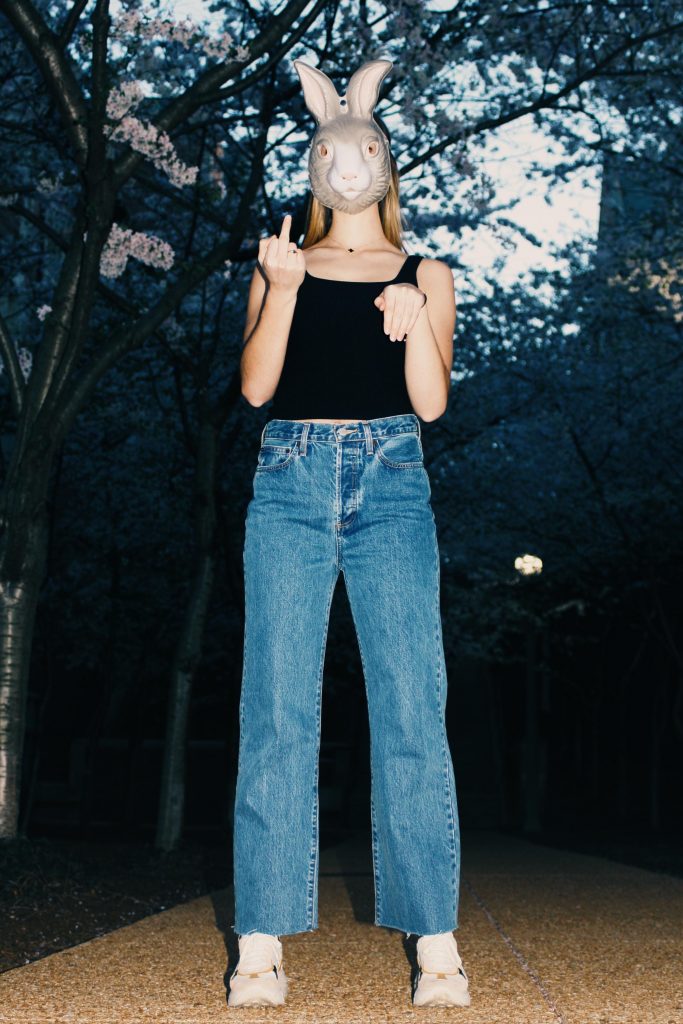
TJ tells her he thinks he can help with that and returns to the center of the circle. He announces that the ritual will soon begin and asks if anyone has a drum. A skinny blonde boy who looks like he’s probably a Starbucks barista but tells people he works at a local coffee shop speaks up. He pulls out an entire bongo.
TJ outlines the order of things, reads a poem welcoming the Fae from crumpled printer paper, and the ritual begins: The Starbucks barista bows his head and plays a sporadic beat; the middle-aged women head the line to the Black Drink and gulp it down without pause; I nudge Hannah toward the back of the line. “College Girls Willingly Sacrificed in Fae Ritual” is seeming like a less likely headline in the local news, but it couldn’t hurt to err on the side of caution. Besides, if we are going to die tonight, what a good story this death would be.
We follow the line as it spirals around a firepit and through a doorway in the middle of the garden. As we approach the threshold, TJ tips the Black Drink toward us.
“It will help you enter trance,” he says, like this is obvious. “It’ll be easier to access the Fae that way.” By now I’ve decided that on the off chance the College of Occult Sciences is on to something, it’s in my best interest to buy in.
The Black Drink tastes like coffee. TJ notices my surprise; “it’s a hazelnut blend, to soften the blow of the herbs,” he tells me. Hannah and I pass through the doorway and enter the garden. Everyone is silent now, and dusk has long fallen. Fireflies flit against the night, and the bongo sings a steady heartbeat. We find a soft patch of grass and give meditation the old college try. I peek at the others through my lashes, remembering dinnertime prayers growing up. Then I wondered, is it just me, who doesn’t believe?
I try to clear my mind, to imagine doorways leading elsewhere, vines shooting from the garden and pulling me into a different realm. But I feel nothing. Maybe I didn’t drink enough of the Black Drink. I consider asking for more, but the possibility that I might break others’ trance-states–or god forbid, induce an early exit from fairyland–stops me. Hannah’s eyes are open now.
“Are you,” I start. “Do you feel anything?”
Hannah smiles at me. “I feel a lot. But not how you mean, no.”
We wander around until we find a spot far away to chat without distracting the others. We talk about our parents–about divorce, heartbreak, monogamy–about our futures and fiction we love. Soon our conversation is interrupted.
William is decked out in head-to-toe red leather. A studded dog collar wraps a little too tightly around his neck.
“You girls look like you could use a smoke,” he says. His accent sounds like my mom’s, when she’s sleepy or angry. He’s from the deep South. We pass a pen around as he tells us about his experience of magic. William tells us about stilling and slowing time–it’s all about knowing which wrist to wear your watch on–, about willing something into existence, and he isn’t at all afraid of our judgement.
“You have a lovely aura,” he says.
“Me?”
“Do you want to know about it?”
He tells me my aura is red–a survivor’s aura, he says. This is something I want to believe in.
Eventually Hannah and I, a little overstimulated, leave William to explore the grounds. We wander through the house, which looks like the setting of a Hoarders episode, spilling over with statues of angels and crystals and books. One of the women tells us to check out the pool, so we do. It’s a plastic kiddie pool tucked behind a rose bush, and it’s exactly what we want. We sit on the edge and wiggle our toes in the water. William finds us soon enough.
“May I?” he asks.
“Of course,” says Hannah.
William tells us that he is a masseuse by day. He notices that Hannah carries her stress in her shoulders.
“From dancing,” she says, and he extends a hand toward her.
“May I?” he asks again.
William kneads Hannah’s shoulders and asks us about our ambitions. When he’s relieved her of some tension, she leaves us alone to run to the restroom. He asks me if I have anything that needs massaging. I don’t particularly want to be touched, but I panic and give him my hand.
“What do you want to be?” he asks, pressing his thumb into my joints. It feels like a convoluted question. I tell him I can see myself being a lot of things. A writer, maybe, if I play my cards right. I ask William what he wants to be.
“The kink industry is limited in St. Louis,” he tells me. By this point in the night I am startled that I can still be shocked. “L.A. is where the BDSM kings go. That’s where I’ll wind up, sooner or later.”
A hysterical laugh rises in my throat, and I only just manage to swallow it. I am most certainly having an out of body experience, sitting here, being massaged my William, future Kink King of L.A. in a kiddie pool. At a Midwestern fairy ritual.
Trance or no trance, this was a moment dense with magic.
Still, my desire to believe needs priming now, more and more the older I get. When I was little, and I would fall, my mom would put dyed-pink sugar on my scrapes and bruises. Fairy dust, she’d murmur–a secret between us. And sure enough, the bruises would fade; the scrapes would heal. So it was never a choice for me, to believe in magic. I had proof.
In fourth grade, a group of little girls began bringing letters to school. They were written in looping cursive and signed with delicate names: Isla, Marigold, Nerissa, Poppy. Along with the letters, the girls brought trinkets and sweets–gifts from their fairy pen pals. I became unhinged. Here is my younger self, fresh off a scavenger hunt in which the prize was a velvet pouch of fairy dust (glitter), collecting dandelion fluff at lunchtime for little monsters to rest their heads, braiding daisies into my tangles. Still, I had no fairy pen pal.
In a grand display of ten-year-old rationale, I decided to do the practical thing and write letters to myself, signed Isabella, my concocted fairy pen pal. After dinner I would sneak outside under the premise of catching fireflies or playing fetch with the family bloodhound; I’d leave the letters at the base of the Red Oak, and in the morning, I’d retrieve them with almost as much excitement as I would have, had they been real. After a week or two my mom caught on, and letters began appearing in the tree. So monumental was my euphoria at having earned my own fairy pen pal–through a commitment to belief, I imagined–that I did not once pause to question if the source of the letters was anything but the fairy pen pal I had manifested. That’s how magic worked, anyhow; it took desperate wanting and the faith that the wanting was actionable.
Eventually my mom grew tired of fairy maintenance; I received a letter saying that Isabella regretted to inform me that she was moving to Oklahoma. And since Oklahoma was a very long way to travel, for someone with such little wings, our correspondence came to an end. By this time the other girls at school had moved on to other things, kickball or gossip. So I cried into my pillow and tried to grow up.
By the time I met Hannah, I had almost grown out of believing–in a lot of things, not just in magic. I consumed magical realism in the secrecy of my bed and talked reality TV and nonfiction with my friends at school. I had been convinced that bruises healed without the help of fairies, and that magic was a space that children were made to live in, before they were allowed to see the world as it is. To believe was to be naive, off-kilter, childish. And then, Hannah: She looks like she’s never spent a single second without the sun following her around–face full of freckles, breathless laugh, a permanent smirk around her eyes. Here was a girl who could pull off believing in magic.
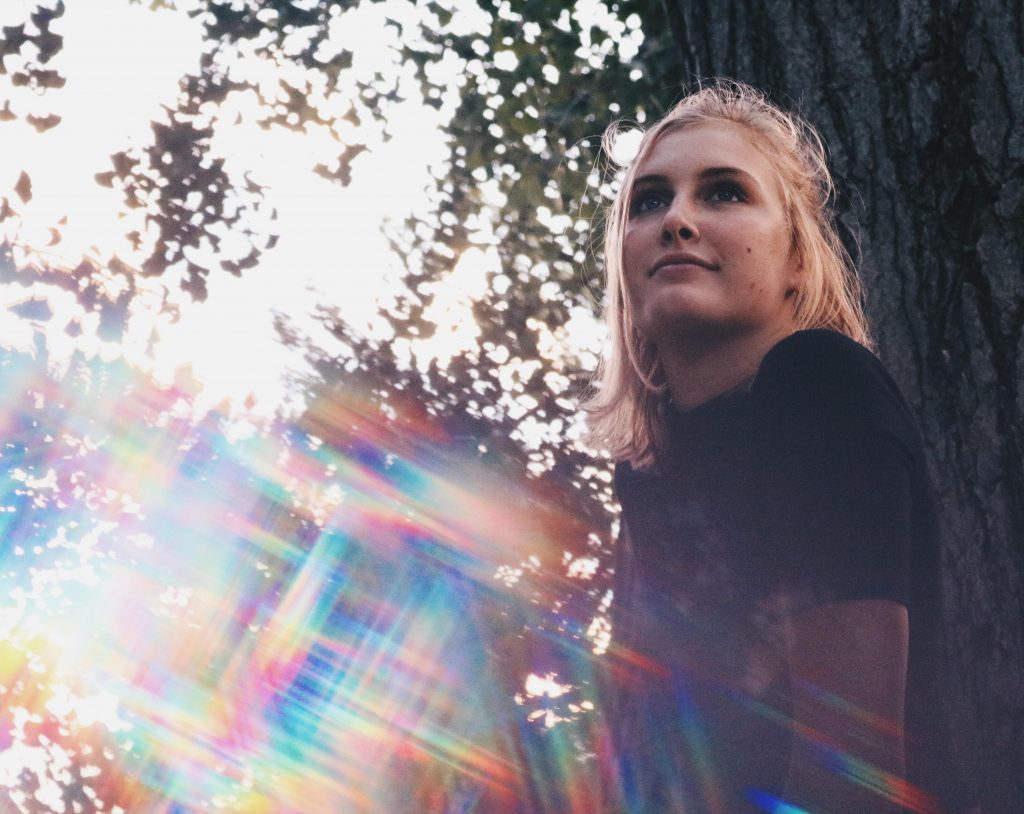
Hannah’s unabashed belief is a thing of childlike wonder; she’s helped me come to the decision that belief in magic is not reserved for children, that believing in what we can’t see does not detract from our maturity or practicality. She is proof that it is possible to see the world as a child does and be fuller for it.
Sometimes magic looks like a tea party with a fawn, like a garden doorway, or letters left in twisting tree trunks. But more often than not, I stumble upon a different kind of magic now–in the breathless feeling you get from laughing too hard, in quiet moments before you fall in love, in knowing that space is yours for the taking. It’s late-night musings (Is a jazz bar a kind of church? How many coincidences does it take to feel something?) and nostalgia held by best friends. Magic, then, as those nonsensical nuances of human experience, is seeing the world both through a kaleidoscope and at its sharpest. Giving myself permission to believe is a work in progress, but a commitment to let myself be awed is not one I take lightly.
So here is a promise to myself: I’ll carry an offering to something bigger than myself–a rhinestone-covered pine cone or something else; I’ll keep an eye on the mail, in case Isabella writes back; and I’ll remember to close the gate. TJ might escape.
Words + Photographs Anna Konradi
Armour Season 24—S/S 2020

